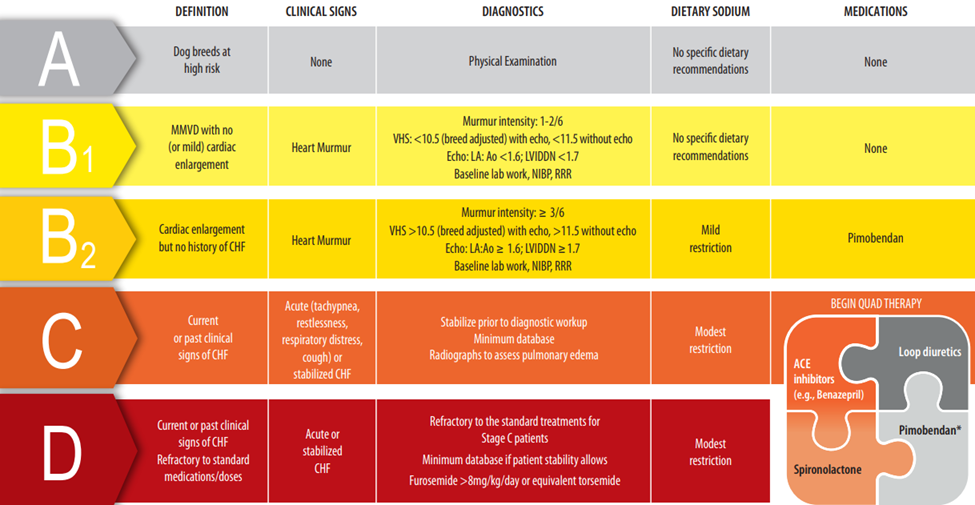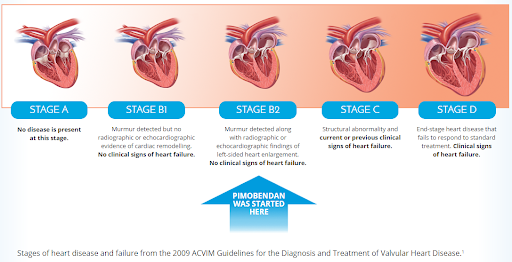Update: Sushi passed away 02/25/24, two years after his Degenerative Mitral Valve Disease Diagnosis. He was my best friend and soulmate, you can read more about him and how I am working to preserve his memory at this link. I will update this post with more information in the future. For now, I hope this article helps.
I recently had a conversation with a friend who shared a distressing experience at about a previous vet. They recounted how their former vet had inserted a drain tube and prescribed antibiotics to prevent infection in their dog, who passed away shortly after. The procedure was prompted by fluid build-up due to suspected heart failure. My friend expressed difficulty in finding reputable articles supporting this practice, and they suspect that the vet took advantage of their family.
This conversation has prompted me to address the issue in this article, as I feel compelled to share important insights about heart disease in dogs and prevent others from ending up in similar distressing situations. My dog has had the diagnosis of Degenerative Mitral Valve Disease for almost two years now. He has been in heart failure for a least 3 months now, so I have personal experience regarding Congestive Heart Failure as well as fluid build up. Below I have listed some thoughts and information on this topic, I hope you find it helpful. Please feel free to leave a comment or reach out if you have any questions.
❤️ If your dog has fluid build up, there is no reason to not at least TRY a diuretic. A diuretic (or at least the lasix brand) is EXTREMELY hard to overdose. They can even give it by injection or IV, but that in emergency situations where the fluid has gotten so bad it that oral pills no longer are helping. There is no reason for a drain tube to not be the first course of action.
❤️ Obviously.. don’t have anyone put a drain tube in your dog. To do so seems like a way to easily get an infection or debris in your dog’s body. Yes, they can take antibiotics, but as we all know consistently taking antibiotics is not good for you and can lead to resistance. You might think “Well, my dog has heart failure so they are not going to live long anyway” but that’s not the case. According to NCBI, in a study of dogs with congestive heart failure they found from diagnosis the average lifespan was 6 to 14 months. However, Dogs diagnosed with Mitral Valve Disease who haven’t developed heart failure live 2 to 5 years longer [citation]. Even my vet has personally recounted a experience where she had a dog live 5 years after developing congestive heart failure.
If a diuretic does not work, whether that be from pills or a injection, Aspiration can be done to provide relief from pressure. However, it is worth noting that once the diuretic permanently stops working, aspiration will only provide temporary relief. If your vet says your dog needs to be aspirated, do not fret. There are dogs that sometimes the fluid build up gets bad and the pills can not work fast enough to provide relief, but this does not equal to your dog no longer being resistant to medication.
❤️ Dogs with heart disease or heart failure may experience episodes of fainting. Medically, fainting is referred to as syncope. There are several different reason’s your dog may experience these episodes including: drop in blood pressure, lack of oxygen, and overexertion. your dog may show signs they are about to faint such as acting drunk, loss of balance, or excess coughing. During these episodes, your dog may become stiff, urinate or defecate, or even bark/cry! Understand that your dog is most likely not in pain when these episodes are happening. When my dog first started having these episodes, I was absolutely mortified. It can feel like you are watching your dog die before your eyes. However, think of it like when a person faints when having their blood drawn. There is no pain, but they likely will feel unwell and may start panting afterwards. From my experience, the aftershock of a episode can last twenty minutes to two hours in extreme cases. Personally, if your dog is experiencing these episodes and has DMVD or Congestive Heart failure, I would recommend looking into increasing cough medicine or the diuretic. Please do not do so without consulting your vet.
❤️ Degenerative mitral valve disease, aka heart disease, is diagnosed by the symptoms shown. My dog was B2 at his diagnosis, that’s the level right before heart failure. He passed away after two years of dealing with DMVD.
❤️My dog was on a concoction of his meds. The most important meds he was on were Vetmedin (Pimobendan) and Lasix (Furosemide) Lasix is a diuretic, which pulls the fluid from around his heart and lungs out. Vetmedin is heart medicine that helps his heart work more efficiently. Later down the line in his diagnosis, he was was also put on blood pressure medicine (Enalapril) and cough medicine (Temaril.) He took one half of his blood pressure pill twice a day, and a whole cough pill twice a day. Both are not a requirements and just help with symptom management. I was told by the vet the blood pressure medicine usually makes very little difference in regards to symptoms.
❤️ The first surface level symptoms (symptoms you will see without a chest X-ray) of the disease is coughing. Then its fainting and exercise intolerance followed by descended belly (fluid), loss of appetite, and lethargy. Truthfully, you are unlikely to know something is wrong until the disease is at least half way through its progression. That is, unless your vet notices something like a heart murmur which is the first physical sign.
When you stop and think about it, its quite rare for any living creature dies for no reason at all. In fact, for both dogs and people the top killer is the same: heart disease and cancer. Because of how common heart disease is, I wanted to provide you all with both my knowledge and experiences so your dog can get the absolute best care. I am not claiming to be a vet, but if you are told anything different from above I’d at the very least get a second opinion, I am very confident in the information I have provided in this article..
Everything I’ve said here is based off experience with my own dog as well as conversations from the two vets at my vet clinic. Please keep in mind that despite my confidence about the information I’ve provided, I am not a licensed vet. I encourage you to please do your own research. Please also keep in mind that each dog (just like people) is a individual and their symptoms and needs may differ from what I have described here.
If anyone has any questions feel free to message me anytime or comment below.
Thank you so much for reading! If you liked this article please consider subscribing to our website! Please also check out PikaKiraKuzu.com/Sushi to learn about my dog who inspired this post! – PikaKiraKuzu.com.






Leave a comment